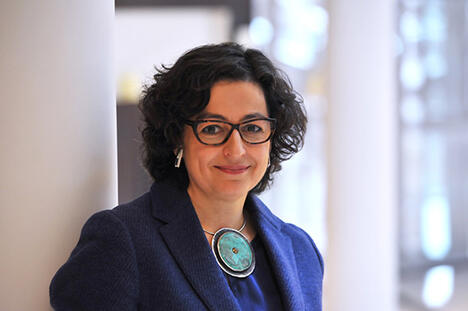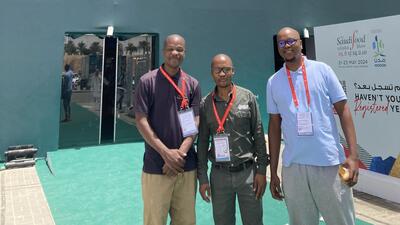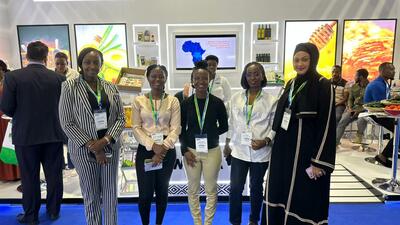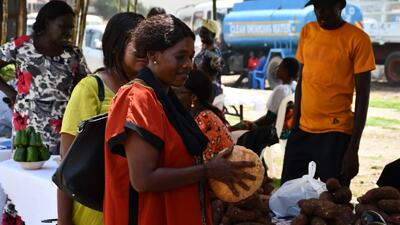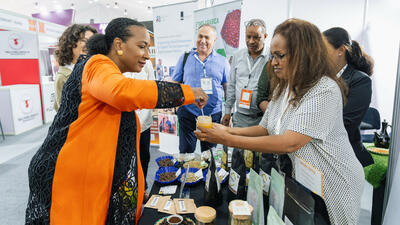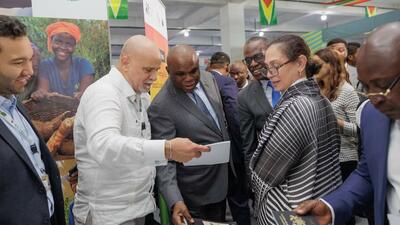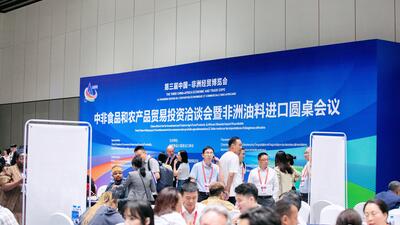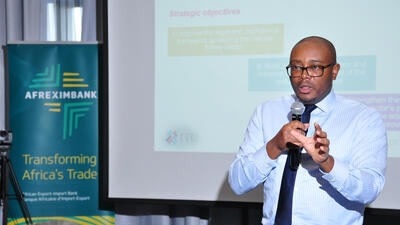Doing more, and doing better
Playwright Tennessee Williams wrote in ‘The Glass Menagerie’ that ‘time is the longest distance between two places’. As 1 September marked a year since I was appointed Executive Director of the International Trade Centre (ITC) I instead offer the proposition that the distance of time can be a quick one when you are focused on results and building momentum towards delivering trade impact for good. It has been a challenging, but extremely rewarding year.
It has been a year where the ITC celebrated its 50th birthday: we committed to doing more and doing better. And we decided that for the first time in its history of our flagship event – the World Export Development Forum (WEDF) – that would be held in an African state, Rwanda. And it was a year where ITC has continued to realign itself with the changing landscape of trade, development and business. The agreement reached on trade facilitation in Bali, Indonesia, last December is one such example. While there is still much work to do to ensure that the deal is operationalized, at ITC we continue to work with our developing-country partners and small and medium-sized enterprises (SMEs) to ensure they benefit from the ease of moving goods and services across borders.
In the past year, I have had the opportunity to visit many of the countries in which ITC works and the people we support. I have met women coffee producers in Burundi, pashmina weavers in Nepal, agro-food producers in Benin, as well as women artisans in the Kibera district of Nairobi, Kenya, that we work with through the Ethical Fashion Initiative. In Zimbabwe, ITC launched the Zim-EBIC Business Centre, which will boost business links with the European Union. In Samoa, during the Third UN Conference on Small Island Developing States, we launched three projects to boost the economic empowerment of women. In Peru, we helped farmers increase their exports to the US. We have launched women’s economic empowerment projects in Palestine, tourism development in Myanmar and a multi-country SITA programme between India and five East African countries. National Export Strategies have been launched in Kyrgyzstan and Jordan, as well as in Liberia, which is now suffering from a health-care crisis that has a devastating impact on its already fragile business environment.
Closer to home ITC introduced its environmental mainstreaming strategy, fine-tuned its AIM programme to build capacities of Trade and Investment Support Institutions, enhanced cooperation with UNDP across the board, with UNWTO in the area of tourism services and increased our work with UNCTAD, WCO and many other organizations involved in supporting trade facilitation.
In all these countries that ITC works there is a common thread: driving development, creating jobs, strengthening SMEs and eradicating poverty. All want to create sustainable livelihoods and to use the development of their business sectors as a mechanism to do this.
Capacitating business – and particularly SMEs – is an important development policy tool. More and more developing countries have embraced trade as a vehicle to lift their people out poverty and many are benefitting from the increased trade and innovation driven by SMEs. But there is much more to do to increase the competitiveness of these SMEs and ITC remains committed to this.
Despite the limited role business – and indeed the concept of trade – were given when the Millennium Development Goals (MDGs) were formulated, it is clear to most policymakers today that the private sector is an essential partner in our collective goal to eradicate poverty.
Can business play a leading role in shaping a better and more sustainable and better world? In 2014 the answer is a resounding ‘yes’. Businesses, both large and small, need a space at the table. Unless we include business in policy-setting and as partners in delivering on capacity building we are not fully exploiting the potential for transformational impact.
Next year, the international community will decide on the goals that the world will seek to achieve once the MDGs have expired. In that post-2015 development agenda there is a space for business, entrepreneurship and trade. That many more business leaders have been invited to help shape the next development agenda bodes well for such a scenario. The insistence of the writers in this issue of Trade Forum only adds momentum to this sentiment. The fundamental premise is partnership. A partnership with shared goals and with one fundamental aim to raise the standard of living of our global community.




